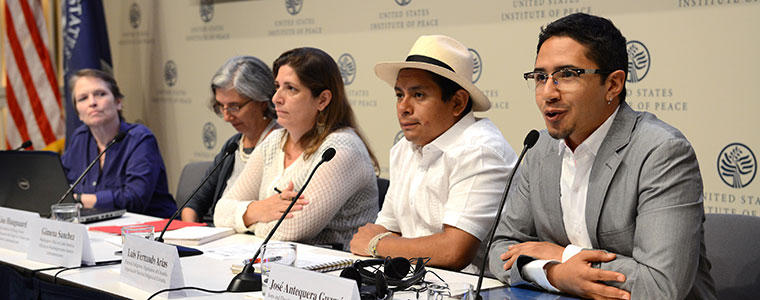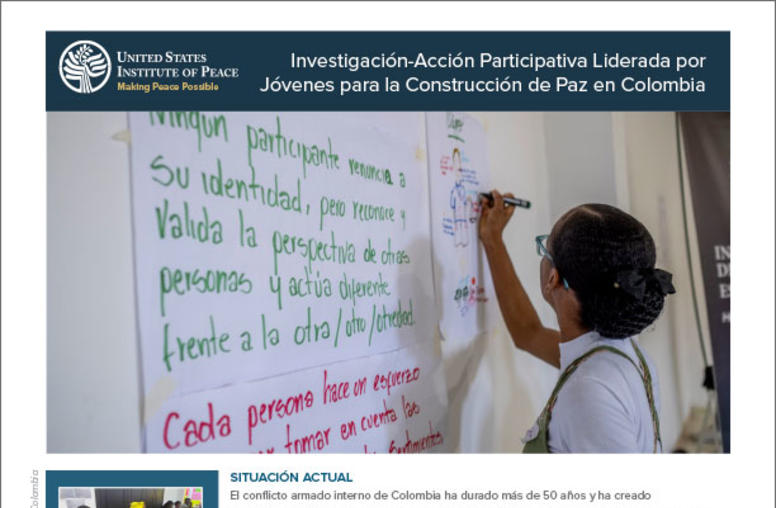Peace Proposals from Victims of Colombia’s Armed Conflict
Colombia Peace Forum
Read the Event CoverageAs the Colombian peace talks resumed in Havana, the discussion is turned to victims’ rights to truth, justice, reparations and guarantees of non-repetition.

 In June, the government of Colombia and the Revolutionary Armed Forces of Colombia (FARC) issued a ground-breaking declaration of principles on victims, the item currently under discussion at the peace talks in Havana. They announced that they were inviting a delegation of victims to participate in the peace talks, and requested that the United Nations and the National University convene a series of forums for victims to present their proposals for satisfying their rights to truth, justice, reparations and non-repetition. Three regional victims’ forums have now taken place and a national forum is scheduled in Cali in early August.
In June, the government of Colombia and the Revolutionary Armed Forces of Colombia (FARC) issued a ground-breaking declaration of principles on victims, the item currently under discussion at the peace talks in Havana. They announced that they were inviting a delegation of victims to participate in the peace talks, and requested that the United Nations and the National University convene a series of forums for victims to present their proposals for satisfying their rights to truth, justice, reparations and non-repetition. Three regional victims’ forums have now taken place and a national forum is scheduled in Cali in early August.
Recently, the parties announced new guidelines for multiple delegations of victims to participate in the peace talks. They invited the UN and the National University, along with the Bishops Conference of Colombia, to provide assistance in organizing the victims’ engagement. The first delegation is due in Havana on August 16th.
Last month, U.S. Vice President Joe Biden traveled to Colombia and met with victims of the conflict. He urged greater attention to human rights protections as the peace process progresses. What role can the U.S. play, both politically and financially, in facilitating an end to the conflict? What recommendations do victims' groups have for the U.S. as it prepares to support a post-war Colombia?
This event was the next in USIP's Colombia Peace Forum Series, will be co-sponsored with the Washington Office on Latin America and the Latin America Working Group Education Fund, and will discuss victims' rights and proposals from four victims of different groups, including guerrillas, paramilitaries, and the State. A half a century of internal armed conflict has resulted in more than 6.5 million victims officially registered with the Colombian government's Victims' Unit. It was an opportunity to hear diverse perspectives and peace proposals from leaders who are survivors of violence.
Continue the conversation on Twitter with #ColombiaPeaceForum.
Both Spanish and English videos are posted below. Biographies for the speakers can be found on WOLA's website.
The video shown at the beginning of the event is No Hubo Tiempo para la Tristeza/ There Was No Time for Sadness. The film clip is being used courtesy of the Centro Nacional de Memoria Histórica (Spanish with English subtitles). To view the full film, please visit their website.
Para la invitación en español haga clic aquí.
Interviews with Luis Fernando Arias, José Antequera Guzmán, and the event video archives are below:
Speakers
Luis Fernando Arias
Regional Indigenous Council of Cauca (CRIC)
José Antequera Guzmán
Co-Founder, Sons and Daughters of Memory and Against Impunity


